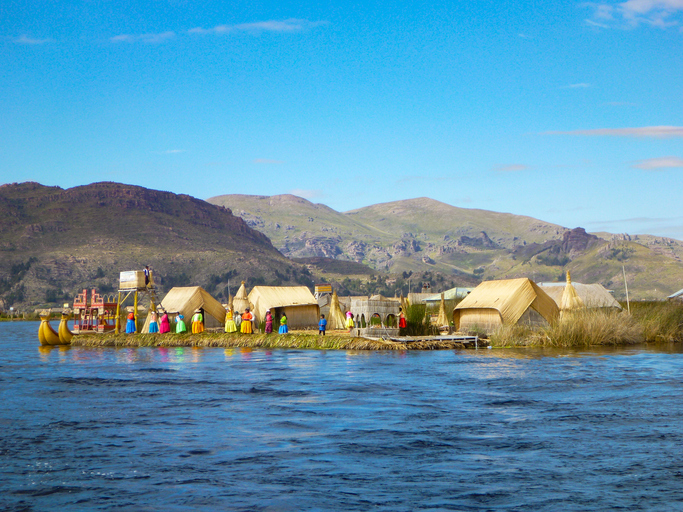Impoverished Peruvians who fed and sheltered academic researchers during fieldwork were not paid for months by Edinburgh University due to a new finance system blamed for widespread problems, a union has claimed.
Thousands of people have complained over the failure of People and Money (P&M), a financial system at the university which left staff with no pay for weeks and suppliers’ bills unpaid, among a raft of other issues.
Edinburgh University apologised after The Ferret revealed the scale of the problems last week, and said it is working urgently to ensure the situation will not happen again.
It has now emerged that “very poor indigenous community villagers” in Peru have not been paid, and NGOs helping Syrian refugees had to chase unpaid bills. Researchers in Tanzania were also left without payment for work.
According to the University and College Union (UCU) — which is pursuing a collective grievance on behalf of its members — the “P&M fiasco” has disproportionately impacted people in poorer countries who provide “essential support” to Edinburgh researchers.
Strongly condemning the “disproportionate harm inflicted on the global south”, the UCU has accused university management of “negligence and abrogation of responsibility”.
NGOs helping Syrian refugees shouldn’t have to chase unpaid bills.
Jonny Dennis, UCU representative at Edinburgh University.
The union cited a litany of problems blamed on P&M which has been collated by the university senate, the supreme academic body at Edinburgh University, and sent to management. It runs to 71 pages and includes comments by staff and students impacted by P&M.
Problems listed include those affecting global south projects. One anonymised PhD student said the implementation of the system has had a “massive negative effect” on research projects and pushed students into “real hardship”.
The student added: “I’ve been unable to pay partners, including very poor indigenous community villagers in Peru who provided food to my field team over the summer, and others.
“I have used up a lot of the goodwill I have built up with partners over the years due to this late/non payment issue. Myself and a number of my PhD students have also been waiting months for expenses, which has put some of my PhD students into real hardship.”
Another PhD student wrote that a Syrian-run NGO in Turkey had to stop working because “they face imminent financial collapse” due to several delayed payments. “This is an important and trusted partner for collaborative research and community engagement – now they seriously reconsider whether they would like to work with us in the future,” the researcher said.
Another student reported that partners in Tanzania have been left “out of pocket” which had damaged the goodwill built- up to establish the research partnership.
Jonny Dennis, a PhD researcher at the University of Edinburgh, and UCU representative, told The Ferret that the “P&M fiasco keeps growing” and that comments on the senate letter demonstrate the “harm inflicted on the university community”.
Dennis added: “People in lower and middle income countries provide essential support to researchers from Edinburgh. Their help ranges from feeding and sheltering researchers on fieldwork to collecting data for research studies. NGOs helping Syrian refugees shouldn’t have to chase unpaid bills.”
PhD students — the lowest-paid researchers at the university — have been “particularly badly affected” by the new system, UCU also said, with many paid stipends late or incorrectly. The union said some had no access to their own grant money for months, meaning they could not buy essential research materials. This has resulted in research being held back, demoralisation of PhD students, and financial insecurity.
UCU Edinburgh is now pursuing a collective grievance, due to an alleged “lack of action” from management, claiming it could “potentially be the largest breach of employment law in Scottish history”. The official grievances include overdue wages and stipend payments, which have caused financial hardship.
In reply, a University of Edinburgh spokesperson said meetings had been held with those affected and it has increased the number of people in its finance team who are “working tirelessly” to process outstanding invoices.
We are sincerely sorry for the position that this has put people in.
A spokesperson for Edinburgh University
“We have listened to how this is affecting our staff, students, suppliers and partners, and we are taking a range of actions to address their issues,” the spokesperson said. “We are sincerely sorry for the position that this has put people in.”
The implementation of the new finance system, the spokesperson explained, required the university to “interrupt financial processing for a period over summer” to allow us to test the system and transfer huge volumes of data. This led to a backlog of some payments.
The spokesperson added: “The university prides itself in fostering good relationships with suppliers, and we are doing our best to ensure all payments are processed as quickly as possible. We apologise to any of our students, staff or suppliers who are experiencing a delay in payment.”
Featured photo shows people living on the floating island of Uros on Lake Titicaca near Puno. Photo credit: iStock and mifaso.















They didn’t even arrange a parallel run of this system and ignored anybody who raised concerns. Catastrophic incompetence!